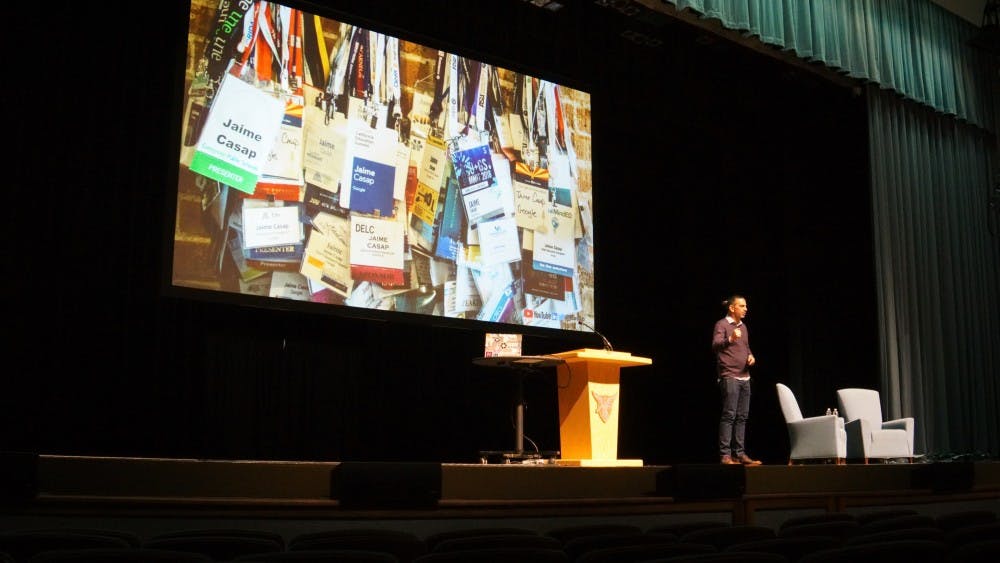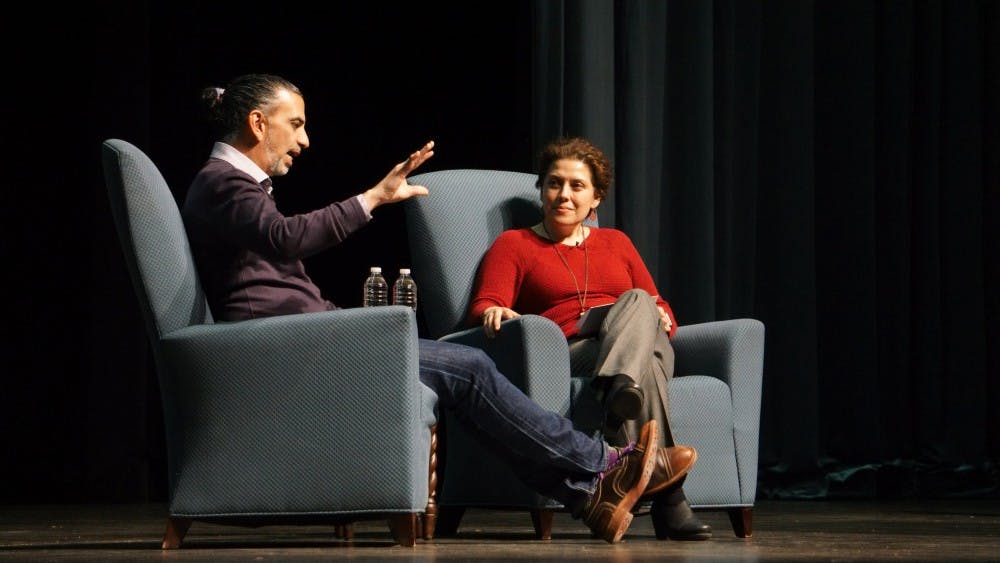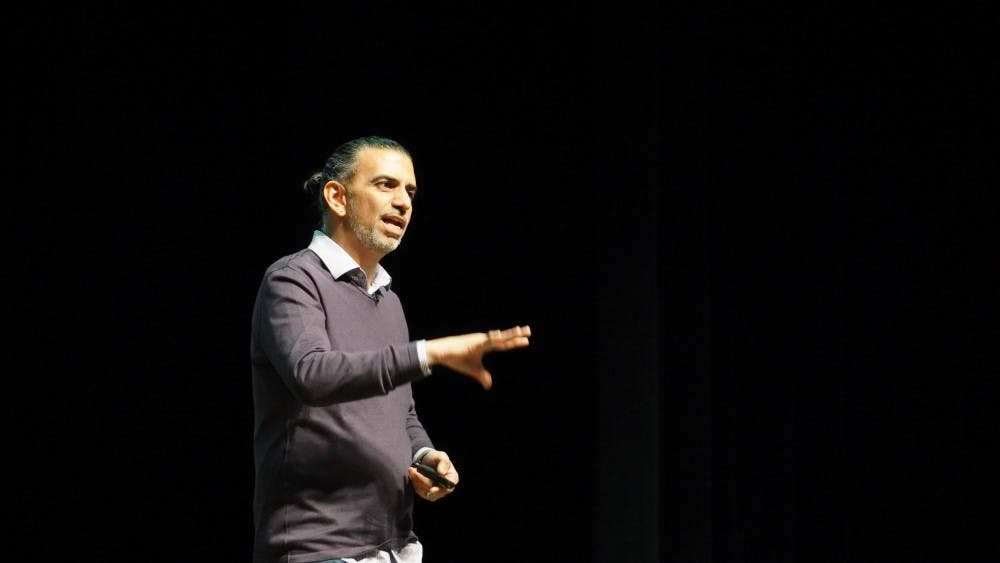Jaime Casap presented himself as a man of many hats — or in his case, lanyards.
“I get to travel around the world, and speak at events all over the world, and I collect [event] passes — my OCD,” he said.
Casap, who has worked at Google for 13 years, delivered a lecture Wednesday at Emens Auditorium about education, Generation Z and the future impacts of technology on the world’s education and economy.
He spent much of his speech praising the potential of Gen Z and explaining how technology can be used to expand the potential of modern education.
"We are now entering a new phase of the economy, just as we entered the Industrial Revolution, as we enter the knowledge-based workforce," Casap said.

Jamie Casap speaks to Ball State students with his lanyards projected on the screen behind him. Casap said he collects his event passes at the various events he attends. John Lynch, DN
Audience members like senior telecommunications major Caitlyn Demelin were interested in learning how their rapidly changing world would differ from the world their parents grew up in.
“I'm going to be growing up watching all the change happen like my parents did and my older sister did,” Demelin said. “Being the one [in my family] to get a different perspective just see how [technology] really changed was interesting to see.”
One of the biggest obstacles to a more technologically progressive workforce is the existing workforce’s fear of pain, not change, Casap said.
He likened the idea of progress for the sake of improvement to his bosses giving him a private jet being at his disposal to cut down on time and work instead of having a travel routine that would involve going to the airport, clearing security, going to the terminal and boarding the plane just to accomplish the same task.
Much of Casap’s audience was already familiar with the constantly changing technology-driven education. Senior sociology major Sarah Powell said she could observe change in the way she learned even within the last few years of her own education.
“I've noticed more and more [people] using … distance education,” Powell said. “And then I've noticed professors trying to engage students by using online stuff.”

Jamie Casap speaks with Susana Rivera-Mills, provost and executive vice president for academic affairs. In his speech, Casap praised the potential of Generation Z and explained how technology can be used to expand the potential of modern education. John Lynch, DN
In addition to presenting the benefits of technology and information in education, the lecture also focused understanding the psyche of Gen Z, and how it differed from the mentality of previous generations.
"We grew up again with this concept of being young and crazy, right?” Casap said. “Sex, drugs and rock and roll. This generation is growing up with 'the world's dying.’"
Casap said shaping previous generations’ perception of Gen Z was important for being more open to changes in technology, and the current generation is more problem-solving oriented than given credit for.
“This generation is thinking about climate change in a way that we're not thinking about it,” Casap said. “They are the problem-solving generation and they're focused on the problems that they believe their elders have left them.”
Contact John Lynch with comments at jplynch@bsu.edu or on Twitter @WritesLynch.




